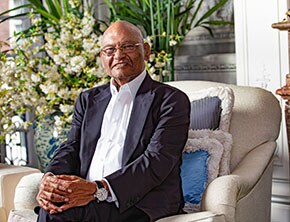
From the woes of Indian generic drug makers to wrong endorsement moves by MS Dhoni and Virat Kohli, here are our most-read stories of the week
Quant investing, the Web3 revolution in India, dissection of the new FEMA amendment are some of the stories that piqued the interest of our readers this week
 Image: Shutterstock
Image: Shutterstock
1) Pharmacy of the world
 In December 2022, Intas received a list of observations from the US Food and Drug Administration (FDA) regarding data integrity and quality compliance. A few weeks ago, Sun Pharma hit a pause on releasing US-bound drugs after getting a non-compliance letter from US FDA. India has seen the highest number of US FDA inspections—64 in 2022 and 55 in 2023 (so far). Are these compliance moves threatening India's title of 'pharmacy of the world'? Keeping pace with the regulations while maintaining growth in the generics drugs manufacturing industry has been challenging for Indian pharma companies. Though generics manufacturing is expensive and less profitable, the volumes are allowing pharma giants to make a large chunk of their revenue from this sector for now. But can this jugaad sustain the growth and churn out profit for generic drug makers? Read more
In December 2022, Intas received a list of observations from the US Food and Drug Administration (FDA) regarding data integrity and quality compliance. A few weeks ago, Sun Pharma hit a pause on releasing US-bound drugs after getting a non-compliance letter from US FDA. India has seen the highest number of US FDA inspections—64 in 2022 and 55 in 2023 (so far). Are these compliance moves threatening India's title of 'pharmacy of the world'? Keeping pace with the regulations while maintaining growth in the generics drugs manufacturing industry has been challenging for Indian pharma companies. Though generics manufacturing is expensive and less profitable, the volumes are allowing pharma giants to make a large chunk of their revenue from this sector for now. But can this jugaad sustain the growth and churn out profit for generic drug makers? Read more
2) Great expectations
 When aspiring commoners look to build their wealth—starting from ground zero—they look up to people a notch above their strata. They look at the path chosen by the 'rich', dissect their investment patterns, and try to find out the 'secret formula' that will make them rich, Forbes India analysed the stock market investments made by rich investors to find out if their strategies, big risks, and savvy decisions contribute more to their wealth. Six out of 10 stocks held mostly by high net-worth individuals (HNIs) or super-rich investors in the three months ending March have sunk, slipping as much as 67 percent, shows the analysis. Are greed and overconfidence to blame? We find out
When aspiring commoners look to build their wealth—starting from ground zero—they look up to people a notch above their strata. They look at the path chosen by the 'rich', dissect their investment patterns, and try to find out the 'secret formula' that will make them rich, Forbes India analysed the stock market investments made by rich investors to find out if their strategies, big risks, and savvy decisions contribute more to their wealth. Six out of 10 stocks held mostly by high net-worth individuals (HNIs) or super-rich investors in the three months ending March have sunk, slipping as much as 67 percent, shows the analysis. Are greed and overconfidence to blame? We find out
3) Anil Agarwal's grand plans
 Anil Agarwal, chairman and founder of Vedanta Resources, heads the group with interests across zinc, aluminium, oil and gas, iron ore, steel and power, among others, making it one of the largest natural resources conglomerates in the world. But the distinguished leader is hungry for more. As is evident in his move to set up India's first semiconductor plant in partnership with Foxconn in Gujarat. The entire project is estimated to cost Rs1.54 lakh crore, with the central government providing a 50 percent subsidy to its semiconductor projects, as part of its $10 billion (Rs76,000 crore) Indian Semiconductor Mission package to promote semiconductor manufacturing in India. This conversation with Agarwal reveals important information about the partnership, regulatory bottlenecks in India, succession plans at Vedanta, and more importantly, the group's debt situation.
Anil Agarwal, chairman and founder of Vedanta Resources, heads the group with interests across zinc, aluminium, oil and gas, iron ore, steel and power, among others, making it one of the largest natural resources conglomerates in the world. But the distinguished leader is hungry for more. As is evident in his move to set up India's first semiconductor plant in partnership with Foxconn in Gujarat. The entire project is estimated to cost Rs1.54 lakh crore, with the central government providing a 50 percent subsidy to its semiconductor projects, as part of its $10 billion (Rs76,000 crore) Indian Semiconductor Mission package to promote semiconductor manufacturing in India. This conversation with Agarwal reveals important information about the partnership, regulatory bottlenecks in India, succession plans at Vedanta, and more importantly, the group's debt situation.  11 percent of global Web3 talent is in India, making it the third-biggest talent pool of the sector, after the US and China. This pool is growing at the fastest rate worldwide, at 120 percent likely in a couple of years, according to a study by NASSCOM. There are over 450 Web3 startups in the country that have got $1.3 billion in investments in the last two years. Over 160 of these startups were founded between 2021 and 2022. Instead of focusing on cryptocurrency trade, they have focused on building Web3 solutions for areas such as BFSI, enterprise tech, consumer tech, and edtech. Experts suggest that India has the potential to be the global player in the Web3 market, just that regulators need to see the potential of leading this revolution and taking the fight and product to the developed world.
11 percent of global Web3 talent is in India, making it the third-biggest talent pool of the sector, after the US and China. This pool is growing at the fastest rate worldwide, at 120 percent likely in a couple of years, according to a study by NASSCOM. There are over 450 Web3 startups in the country that have got $1.3 billion in investments in the last two years. Over 160 of these startups were founded between 2021 and 2022. Instead of focusing on cryptocurrency trade, they have focused on building Web3 solutions for areas such as BFSI, enterprise tech, consumer tech, and edtech. Experts suggest that India has the potential to be the global player in the Web3 market, just that regulators need to see the potential of leading this revolution and taking the fight and product to the developed world.  “In my opinion, investment success will not be produced by arcane formulae, computer programs or signals flashed by the price behaviour of stocks and markets. An investor will succeed by coupling good business judgment with an ability to insulate his thoughts and behaviour from the super-contagious emotions that swirl about the marketplace,” wrote Warren Buffett to Berkshire Hathaway investors in 1987. The comment was made when US money managers were looking into if strategies infused with quantitative research would work. More than three decades later, it appears that fund managers have not listened to the billionaire's advice. Around 35 percent of the total US market capitalisation of over $25 trillion is owned by quant-driven funds. How does the Indian chapter of this story look?
“In my opinion, investment success will not be produced by arcane formulae, computer programs or signals flashed by the price behaviour of stocks and markets. An investor will succeed by coupling good business judgment with an ability to insulate his thoughts and behaviour from the super-contagious emotions that swirl about the marketplace,” wrote Warren Buffett to Berkshire Hathaway investors in 1987. The comment was made when US money managers were looking into if strategies infused with quantitative research would work. More than three decades later, it appears that fund managers have not listened to the billionaire's advice. Around 35 percent of the total US market capitalisation of over $25 trillion is owned by quant-driven funds. How does the Indian chapter of this story look?  Apart from their passion for cricket, winning trophies and setting records, MS Dhoni and Virat Kohli also share a remarkable common ground—both of them take the two top spots on the 'non-compliant celebs' list complied by the Advertising Standards Council of India (ASCI), the watchdog of the advertising industry. In 97 percent of the ads scanned by ASCI, celebrity endorsers like Dhoni, Kohli, Ranveer Singh, Shraddha Kapoor, and Sara Ali Khan have failed to provide evidence of due diligence as mandated by the Consumer Protection Act. While ASCI is a barking dog, this bark (the list they have made public) should have an impact on the credibility of endorsements made by these celebs. The trust of their followers should matter more than the money they are pocketing.
Apart from their passion for cricket, winning trophies and setting records, MS Dhoni and Virat Kohli also share a remarkable common ground—both of them take the two top spots on the 'non-compliant celebs' list complied by the Advertising Standards Council of India (ASCI), the watchdog of the advertising industry. In 97 percent of the ads scanned by ASCI, celebrity endorsers like Dhoni, Kohli, Ranveer Singh, Shraddha Kapoor, and Sara Ali Khan have failed to provide evidence of due diligence as mandated by the Consumer Protection Act. While ASCI is a barking dog, this bark (the list they have made public) should have an impact on the credibility of endorsements made by these celebs. The trust of their followers should matter more than the money they are pocketing.  If you are a credit card holder willing to spend some money on your international trip, this is not a piece of good news for you. The government just amended Foreign Exchange Management Rules to include credit card transactions under the Liberalised Remittance Scheme limit of $250,000. This amendment means that international credit card expenses also will now attract a higher TCS (Tax Collected at Source) rate of 20 percent. In this podcast, Amit Singhania, partner at Shardul Amarchand Mangaldas & Co helps you understand the rationale behind this move, how your spending could be impacted, and what it means for the card-issuing banks and spending patterns.
If you are a credit card holder willing to spend some money on your international trip, this is not a piece of good news for you. The government just amended Foreign Exchange Management Rules to include credit card transactions under the Liberalised Remittance Scheme limit of $250,000. This amendment means that international credit card expenses also will now attract a higher TCS (Tax Collected at Source) rate of 20 percent. In this podcast, Amit Singhania, partner at Shardul Amarchand Mangaldas & Co helps you understand the rationale behind this move, how your spending could be impacted, and what it means for the card-issuing banks and spending patterns. 



